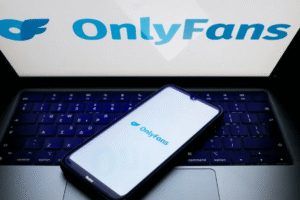
AI Is Killing the Résumé: Why the Future of Hiring Is Human Again
The Automation Arms Race Behind the Résumé’s Collapse
The modern hiring process is collapsing under the weight of its own automation. Platforms like LinkedIn now process over 11,000 job applications per minute—a staggering 45% increase over the past year. What once signaled a candidate’s genuine interest or qualification—the résumé—is rapidly devolving into noise, distorted by an escalating technological arms race between job seekers and employers.
The tipping point arrived with generative AI. What began as a convenience tool has evolved into a disruptive force. Applicants now deploy bots to inject job descriptions into résumés, apply to hundreds of roles with minimal effort, and even pay for AI agents that autonomously search for jobs and submit applications. The job hunt has become a high-volume game, reducing authenticity to automation.
Recruiters, in turn, are inundated. In one case, an HR consultant received over 1,200 applications for a single remote role—so many that the posting had to be pulled down. Months later, they were still sorting through the backlog. The quality signal has vanished, replaced by indistinguishable, machine-generated submissions.
This isn’t just a volume problem—it’s a trust crisis. Fraud is on the rise, with one in four job applications projected to be fraudulent by 2028. Remote IT roles have already been exploited by bad actors using fake identities. Meanwhile, some candidates are using invisible text and prompt injections to bypass screening tools, making it harder for companies to detect manipulation or bias.
Employers are responding with AI defenses of their own. Some firms now use AI-powered chatbots that reduce hiring time by up to 75%. Others use natural language search, automated follow-ups, and résumé-ranking algorithms. But the result is machines screening machines—leaving human connection and context behind.
Ironically, even companies that helped build these tools are stepping back. Some leading AI providers have publicly advised candidates not to use LLMs in job applications—an admission that underscores the growing dysfunction of the current system.
Bias is another concern. Even when screening tools work as intended, they replicate familiar patterns—favoring certain names or backgrounds. Regulatory responses are emerging: the EU already classifies AI in hiring as high-risk, subject to stricter compliance. In the U.S., anti-discrimination laws still apply, but there’s no unified federal policy addressing the use of AI in recruitment.
The core issue remains: when every candidate can generate hundreds of highly tailored applications at scale, the résumé loses its meaning. It no longer signals effort, intent, or even accuracy. What’s needed are alternatives AI can’t easily replicate—live problem-solving, trial work, portfolio reviews, or real-time collaboration.
The same tools that once promised fairness and efficiency are now undermining both. Organizations that rethink hiring—not just optimize it—will gain the advantage. Human judgment, authenticity, and context are set to become the most valuable assets in the future of work.
Explore Business Solutions from Uttkrist and our Partners, Pipedrive CRM and more: uttkrist.com/explore



